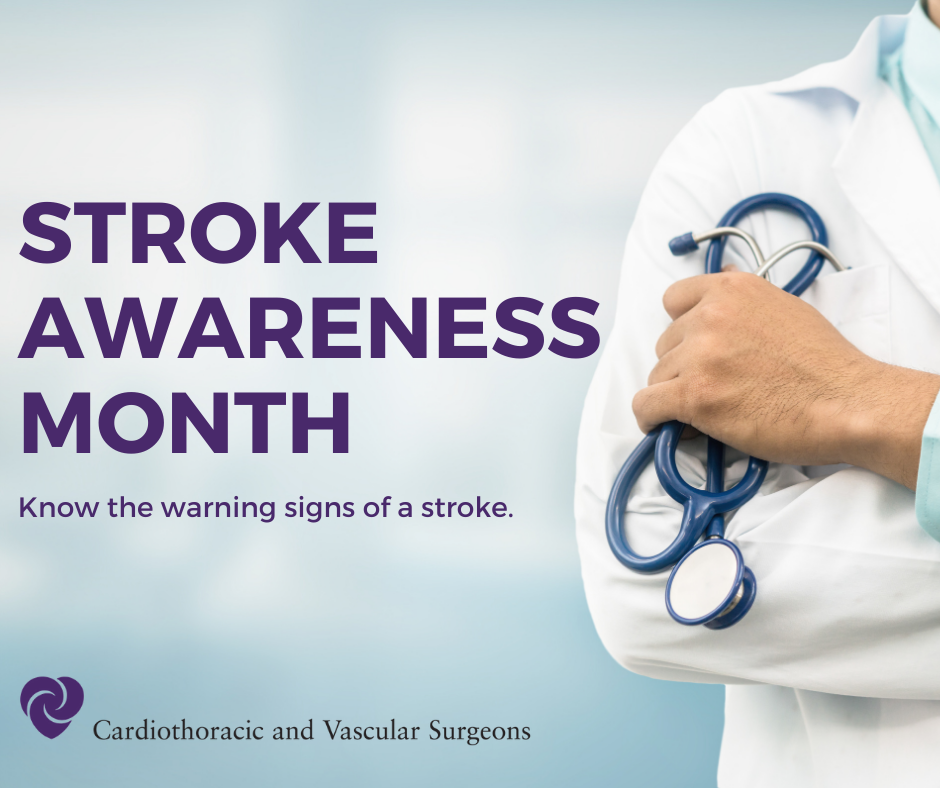Last year, stroke cases were down nearly 40% due to fear of going to the hospital amid the pandemic. Yet there were still more than 159,000 deaths reported due to this common and sometimes deadly medical emergency that occurs when blood supply to the brain is blocked or a blood vessel in the brain bursts or hemorrhages.
Every 40 seconds in the United States, someone has a stroke. If action is not taken immediately, there can be irreversible damage to the brain or even death in extreme cases.
At CTVS, our team of board-certified vascular surgeons has been dedicated to stroke prevention and treatment in Central Texas for more than 65 years.
May is Stroke Awareness Month, and we want everyone to know the signs of a stroke and when it’s time to call 9-1-1.
As we round the corner with Covid, there is much less risk for exposure in hospitals, so those experiencing stroke symptoms should feel safe going to the ER for immediate care.
Here’s a helpful checklist to recognize stroke symptoms:
F – Face: is one side of the face suddenly drooping?
A – Arms: can they both be raised or is one arm hanging downward or numb?
S – Speech: are simple phrases able to be repeated, or is speech slurred and slowed significantly?
T – Time: remember that time is of the essence here, and if you or someone you are with is experiencing stroke symptoms, call 911 or get to the hospital immediately, as just a few seconds can mean the difference between brain damage, death or a successful recovery.
How can you prevent a stroke?
Risk factors that you can successfully manage to help prevent stroke include keeping your blood pressure, diabetes, weight, and cholesterol all in check.
Additionally, if you suffer from carotid disease, or carotid stenosis–where the main arteries in the neck supplying the brain with blood are blocked by plaque–effective treatment is necessary to minimize your stroke risk.
Surgery known as an endarterectomy, or the less invasive TCAR (transcarotid artery revascularization) procedure, clears out the plaque for blood to flow freely through these important arteries to prevent a blockage and an eventual stroke from occurring.
If you have questions about stroke prevention, managing your carotid disease, or the TCAR procedure, please visit ctvstexas.com or call us at (512) 459-8753 to schedule an appointment with one of our board-certified specialists.
Don’t forget to follow us on Facebook and Twitter and check our blog for regular updates.

